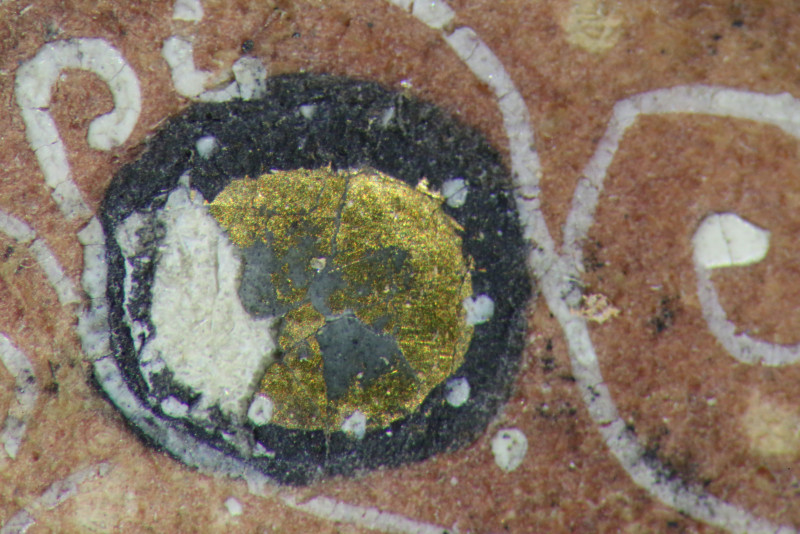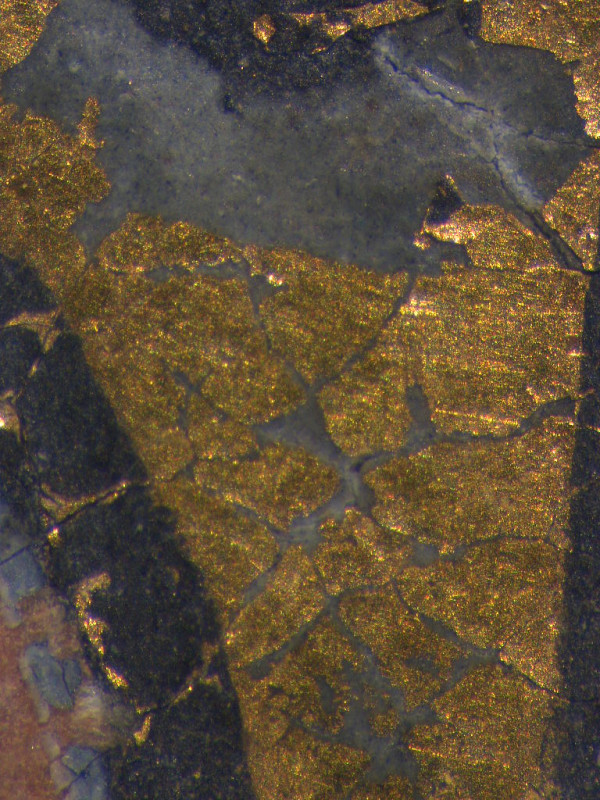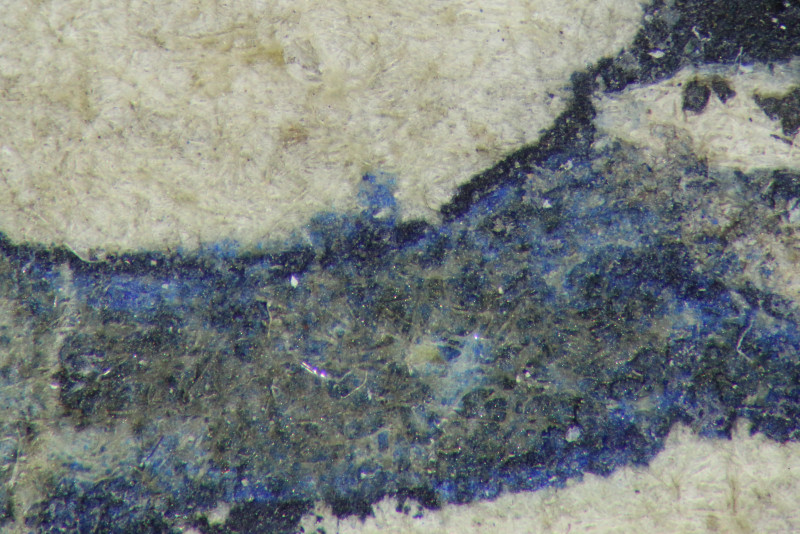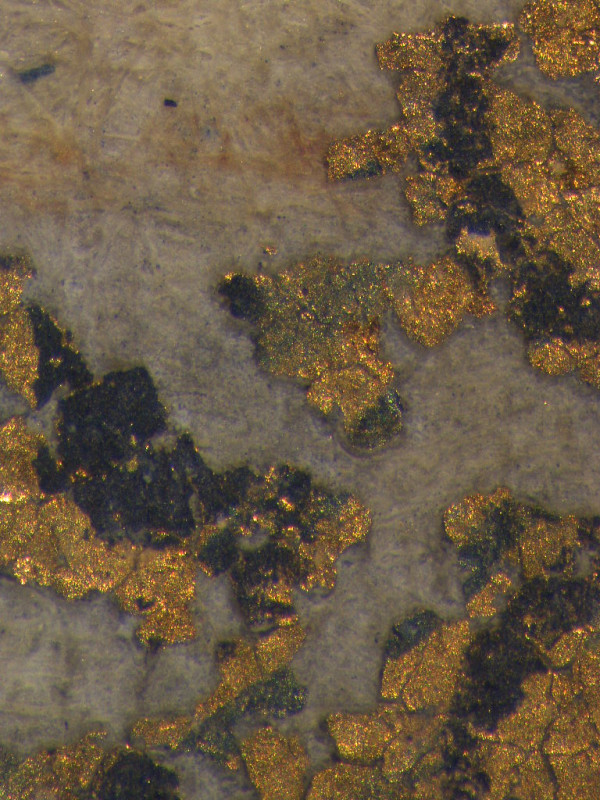Gold leaf
Artists' Techniques
The artist applied applied gold leaf in two different ways. The gold leaf of the initial and bar border is laid on a grey ground containing gypsum, a copper-based compound, and lead white. The gold leaf of the peacock's tail is applied directly onto the parchment.







Illuminated initial [E] with full inhabited border
This parade of animals includes many of the creatures that would have been included within Roger de Pilkington’s grant and acts as a pictorial record of his newly affirmed rights. It also promotes his family identity by including a squirrel perched on a tree in the right hand margin, a motif that he used as a crest on his personal seal. The gold of the initial and bar border is laid on a grey ground (hotspot 1), while the blue is a strong undiluted azurite, and the pink is an organic dye. Azurite reappears in the body of the splendid peacock, but here it is overpainted by a mixture of indigo and vermilion (now very darkened) to mimic the iridescence of the plumage (hotspot 2). The same pink dye mixed with lead white is used to create the rose coloured breast of the jay. Gold leaf is used on the peacock’s tail, now applied directly onto the parchment (hotspot 3); adjacently, his wing is painted in mosaic gold, which is also used for the yellow plumage of the peahen. The green of the trees and foliage is uniformly verdigris, while the dominant colours for depicting the fauna – grey and brown – are created by a range of mixtures. The huntsman's clothing is painted in a mixture of lead white and ultramarine, probably ash (hotspot 4).